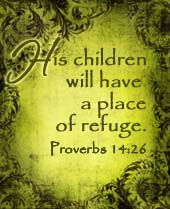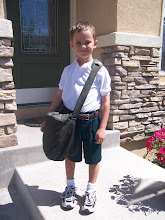
While we were in Ethiopia to pick up our children, we stayed in a guest house with a few other adoptive American families. One of those families was also with our agency and was adopting a son who was from the same village as our children. When we picked up our kids from the foster care center and brought them back to the guest house, it was immediately apparent that these three were buddies, or, 'abetees'.
For the next few days, they played non-stop and constantly chattered in their native Wolaitian language. This was actually one of several graces that God planted in our life during that nightmarish week. Tigist and Mebratu were very good anyway, but to have a close friend to pal around with initially was quite a treat for them and quite a relief for us so we could focus on one sick baby.
We also flew on the same flight home to the U.S. together and then parted ways at Dulles (D.C.) airport when they went on to the Northwest and we flew home. It was a tearful moment to see these sweet children part, one more time, from their last link to 'home' and their former life, which they had almost completely left behind, save for the memories in their little heads. Strangely, the kids did not cry, just their new families. My hunch is that this one last breaking from their past was small compared to the other losses they had already grieved (and still are grieving). I don't know - emotionally, I still haven't figured my kids out and probably never will, but that's another post.
I recently contacted their 'Abetee's' mom and we arranged a phone call for the kids to chat and catch up. Tigist and Mebratu were quite delighted at the thought of getting to talk with him over the phone. They spent all of last night's dinner practicing and thinking about what they were going to say. (which my other kids turned into a silly session of thinking of all the wacky things they could tell Abetee about their new life with us... and the conversation went south from there).
Today the phone call came and I ran outside to pull the kids in to talk to Abettee. It was a little different than we expected. In the first 30 seconds, I think we heard some Wolaitian phrases tossed back and forth ( it was hard to tell because Mebratu kept screaming in his high-pitched little voice 'ABETEE!!!') He was in shock, I think that you could hear a familiar voice come out of that black thing that hangs on the wall (I don't think he's ever used a phone before) Then, I got down close to Tigist and listened, urging her to use 'words', and talk to Abettee with their 'Wolaitia words'. What happened next was so fascinating and at the same time, it made me sad. She looked at me and seemed confused at first. Then, I think she got what I was saying, that she could have a conversation with Abetee in her native tongue. She looked up at the ceiling like she was thinking very hard and then she looked a bit uncomfortable and confused at the same time. Her mind was grasping for Wolaitian words.... but they were gone. After only 9 weeks in the U.S., her native language has almost disappeared. I had assumed she would/could speak it now, if just given an opportunity.
But this experience today confirms what other adoptive families have told us. They lose their native language quickly. Not to say that they are talking up a storm in English. Quite the opposite. I have actually been frustrated with the 'wall' we've hit lately in her English. (Not so much with Mebratu who speaks much more English than she does.) I think that with Tigist being older (almost 8), she has entered the silent phase. She has no language right now. She is continuing to absorb English but does not speak it.
I know this is true because she and Sophie and I were listening to 'Adventures in Odyssey' tonight and she busted out laughing at the kid who wrote the poem about 'loving pants'. She got it! So, I think she does hear so much more than she speaks.
And so it was a bitter sweet kind of day. I see the Ethiopian identity of my children fading fast. I'm happy and excited for them to come into their own here, as Americans-- because that is what they are now. And I know that the new identity as Americans and as our children is ultimately going to bring them happiness. But at the same time, I am grieving for them. That so much has been lost and that the old Tigist and Mebratu that spoke a remote tribal dialect of southern Ethiopian, are leaving us for good.








8 comments:
Thank you so much for sharing your heart here. This post is interesting and sad at the same time. Do the kids ever speak their language to each other?
Our daughter turned one the day she arrived home in the US . . . we think she knew one word in Bengali because she would point and say something that sounded like the word for "look!"
How heartwrenching it is to see parts of their old life slipping away . . . I hope you're comforted by the fact that God has known his plan for all of you for eons.
It's a testament to your good mothering that you're wrestling with all these things. Your children are blessed to have a mom who is sensitive to their past and present, instead of just trying to make them conform to being American.
-- Nancy
Wow! Like Jennifer said, interesting and sad. So sweet of you to set up that phone call - your heart is certainly looking out for your kids. It's also neat to hear that Tigist and Mebratu are learning English, even if it's slower than you expected. In reality, it's only been 9 weeks, such a short period of time when you think of eternity. It's neat to know that Mebratu is picking up the language quickly and that Tigist too understands. I pray that one day soon she amazes you when she breaks out in a paragraph in English. :)
Always love hearing updates and continue to pray for you
my ex-in-laws are retired, career, foreign missionaries. when they would come back to the states on furlough, they had trouble with the english language ... they lost their native language while in south american speaking only spanish. then they'd find they had lost some spanish when they returned to the mission field from furlough. i always found that interesting.
my ex husband, who grew up in south america and spoke with as though a native (without a north american accent), can easily understand written and spoken spanish, but he has great difficulty speaking it.
What a journey, sitting on this side of things, it's so fascinating to "learn" things I would have never even thought of. It seems so unreal that they would lose their native tongue so fast. If we could only fast forward 20 years and know if they will remember these days and what they were feeling. Someday teaching them to journal would be so fascinating. God is in the small stuff indeed. Thanks for the post. Loving you guys along the way.
Thank you for sharing- I love to read about your family and how things are going. One day I will bring home a sibling group from Ethiopia, so reading your posts gives me an insight into what things might/could be like.
It's sad that she would try to speak her language and find that it's not all there anymore! But at the same time amazing that they can learn English so quickly!! I agree with with Nancy- you are a wonderful mother to be so sensitive to everything they are going through, past, present and future.
Keep the posts coming- love to read your blog!!
Stacy
Continuing to pray for your family as you acclimate to being a larger family. :-) BTW - I just found out that our new son is also from Soddo! Sweet blessings, Amy in OR
How are you all doing? It's been awhile since we heard an update. I assume you are busy beyond belief and have a million things on your priority list above "blogging"! Still, hope you are well... I continue to check for updates...
Post a Comment